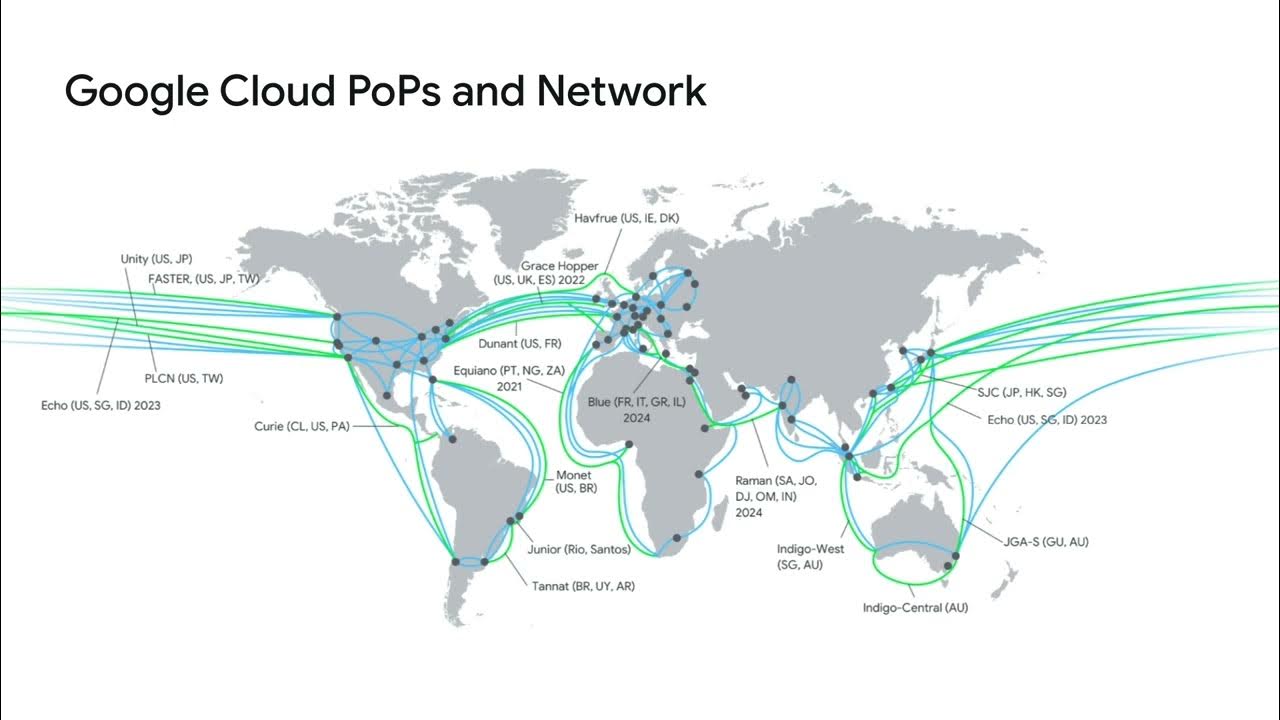3 1 5 Secure networking in Cloud
Summary
TLDRThe script discusses the importance of secure cloud networking as digital data grows. It explains that building a cloud network is similar to on-premises deployment but uses virtual networking elements. It highlights defining network size, deploying in logically separated VPCs and subnets, and implementing security through ACLs and Security Groups. The script also mentions the use of public gateways for internet access, VPNs for secure connections, and load balancers for application responsiveness. It concludes by mentioning the role of cloud networks in securing environments and ensuring high-performing applications.
Takeaways
- 🌐 **Cloud Adoption & Cybersecurity**: As cloud environments become more prevalent, ensuring cybersecurity is critical.
- 🔌 **Cloud Networking Similarities**: Building a cloud network is akin to deploying an on-premises network, but with logical rather than physical devices.
- 📈 **Virtual Networking Elements**: Elements like Network Interface Controllers (NICs) are virtualized in the cloud (vNICs).
- 🏭 **Networking as a Service**: Cloud networking functions are delivered as services rather than physical devices.
- 📏 **Defining Cloud Network Size**: Start by defining the IP address range to establish the network boundaries.
- 🏘️ **Cloud Networks & VPCs**: Cloud networks are deployed in Virtual Private Clouds (VPCs), which can be segmented into subnets.
- 🔒 **Private & Scalable Networks**: Logically segmented networks offer private cloud security with public cloud scalability.
- 🛡️ **Security Implementation**: Security in the cloud is implemented at the subnet level, primarily through Access Control Lists (ACLS).
- 👥 **Security Groups**: Security Groups provide instance-level security, such as for Virtual Server Instances (VSIs).
- 🌐 **Internet Access for VSIs**: Web-facing VSIs require Internet access, facilitated by a public Gateway instance.
- 🔗 **VPNs for Secure Connectivity**: Enterprises use VPNs to securely connect on-premises resources to the cloud.
- 🔄 **Load Balancers for Responsiveness**: Load Balancers ensure applications remain responsive by managing bandwidth availability.
- 🚀 **Dedicated Connections**: High-speed, dedicated connections are preferred for secure and efficient hybrid cloud environments.
- 🛠️ **Logical Constructs for Networking**: Building a cloud network involves creating logical constructs that mimic data center networks for security and performance.
Q & A
What is the primary difference between building a cloud network and deploying a network in an on-premises data center?
-The primary difference is that in the cloud, logical instances of networking elements such as vNICs are used instead of physical devices, and networking functions are delivered as a service rather than in the form of rack-mounted devices.
What is the role of Virtual Private Cloud (VPC) in cloud networking?
-VPC is used to create logically separated segments of the network, providing customers with the security of private clouds and the scalability of public clouds.
How do subnets function within a cloud network?
-Subnets are smaller segments within a VPC where cloud resources such as VMs, storage, and load balancers are deployed. They allow the use of multi-tier concepts similar to on-premises environments and are the main area where security is implemented.
What is the purpose of Access Control Lists (ACLs) in cloud subnets?
-ACLs serve as a subnet-level firewall, protecting each subnet by controlling access to and from the network.
What is a Security Group in the context of cloud networking?
-Security Groups provide security at the instance level, such as Virtual Server Instances (VSIs), allowing for fine-grained access control to specific resources within a subnet.
How are VSIs organized in a three-tier application architecture within cloud subnets?
-In a three-tier application, web access VSIs are placed in one Security Group, application tier VSIs in a second, and backend database VSIs in a third, ensuring logical separation and security for each layer.
Why is a public Gateway instance added to the network?
-A public Gateway instance is added to enable users' access to the application over the internet, specifically for the internet-facing tier of a cloud-based application.
How do enterprises extend their on-premises resources to the cloud securely?
-Enterprises use Virtual Private Networks (VPNs) to securely connect their on-premises resources to the cloud, ensuring private and controlled access.
What is the advantage of using Load Balancers in a cloud network?
-Load Balancers ensure the availability of bandwidth for different applications, helping to maintain application responsiveness and performance.
Why might enterprises prefer dedicated high-speed connections over public connectivity solutions?
-Dedicated high-speed connections, such as those offered by IBM Cloud's Direct Link, provide a more secure and efficient way to connect on-premises resources to the cloud compared to public connectivity solutions.
What does building a cloud network entail?
-Building a cloud network entails creating a set of logical constructs that deliver networking functionality akin to data center networks, ensuring secure and high-performing business applications.
Outlines

This section is available to paid users only. Please upgrade to access this part.
Upgrade NowMindmap

This section is available to paid users only. Please upgrade to access this part.
Upgrade NowKeywords

This section is available to paid users only. Please upgrade to access this part.
Upgrade NowHighlights

This section is available to paid users only. Please upgrade to access this part.
Upgrade NowTranscripts

This section is available to paid users only. Please upgrade to access this part.
Upgrade Now5.0 / 5 (0 votes)





